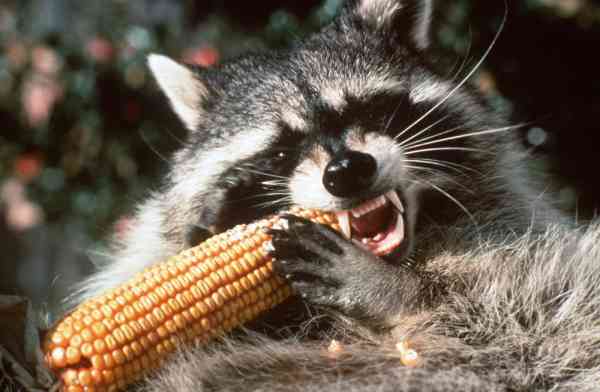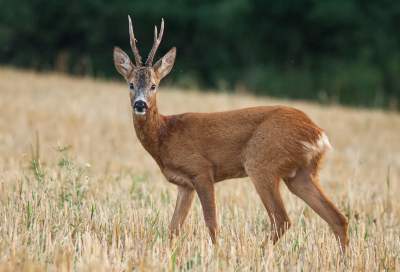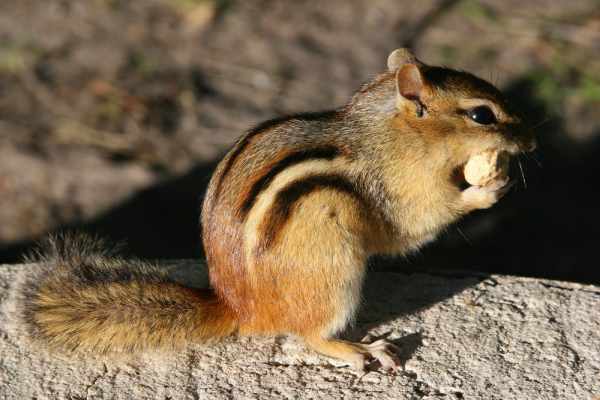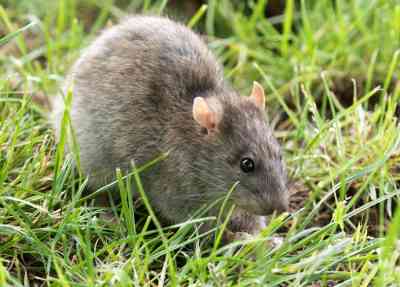Tomatoes are a delicious and highly nutritious fruit that favourite of many humans, but our furry friends appreciate them too. Unfortunately, the majority of creatures who make it their business to enjoy this delicacy tend to be pests.
Table of Contents
Bears, birds, rodents and even rabbits can often be found raiding tomato plants in gardens and backyards. For wild visitors seeking out these tasty treats they are quite rare – tomatoes don’t tend to grow in their natural habitats!
Yet, when the opportunity presents itself, these critters will make sure to take full advantage of your garden produce whether you like it or not!
Learn what animals eat tomatoes from the list below:
1. Rabbits
Scientific name (family): Leporidae

Rabbits may be adorable, but to tomato-growing gardeners, they can be a real menace. It’s not uncommon for even experienced gardeners that have installed fences around their tomatoes to find the little rascals had burrowed their way in and made off with some of the luscious red bounties.
As rabbits naturally seek out nutrient-rich sources of food, tomatoes are like a big neon sign drawing them in. Moreover, being small and nimble creatures gives them an extra advantage in outwitting humans in their attempt to get their hands on some delicious fruits.
2. Raccoons
Scientific name: Procyon lotor

Raccoons have earned their reputation as the sneakiest animals around, with good cause. With their incredible dexterity and skill, they can not only climb over fences but also avoid traps set by farmers and homeowners. They will even go so far as to break into human establishments to get their food!
Though technically omnivores – eating literally everything – raccoons are known especially for their tomato-stealing exploits. Out of all animals that eat tomatoes, they are certainly the most adept. When it comes to keeping them out of a garden, it’s an uphill battle – raccoons can dig up roots, squeeze through tight places, and even shimmy up fences with ease.
3. Squirrels
Scientific name (family): Sciuridae

Squirrels are known to be omnivores and it seems like no garden is safe from them; tomatoes and other vegetables don’t last long when there’s a squirrel present.
They are one of the most determined animals out there – they have no qualms about climbing fences or digging through the soil just to get their hands (or rather, claws) on ripe tomatoes. Unlike some other animals that feed primarily on nuts, such as acorns, they can increase their nutrition intake by eating tomatoes.
Tomatoes contain far more nutrients than nuts ever could, giving them energy for the entire day.
4. Deer
Scientific name (family): Cervidae

Deer may primarily be thought of as a menace to tomatoes, but their diet actually consists of a wide variety of fruits, vegetables, and flowers. When faced with hunger, these animals have no problem raiding your crop despite the fence that has been erected.
Finding nutrients in the wild is an ongoing challenge for deer, so it goes without saying that they will take advantage of any opportunity they get to fill their bellies. With that being said, if you’re looking to protect your produce from marauding deer, then you can do so by installing a tall enough fence – usually 6 feet – or making sure that you have a dog patrolling the area!
5. Groundhogs
Scientific name: Marmota monax

Field mice are often seen as garden varminters and fruit stealers. However, few people know that they actually do enjoy tomatoes! Despite their limited diet in the wild of mostly grasses and a select few plants, they will readily accept our juicy tomatoes as a feast.
The good news is, even though their cumbersome size can cause a bit of trampling to the otherwise safe tomato plant, the mice themselves won’t actually eat the plant itself – so at least you don’t have to worry about losing those delicious fruits!
6. Wild Boars
Scientific name: Sus scrofa

Wild boars pose a major problem to farmers with their voracious appetites and enormous strength. Not only do they eat tomatoes, which can be ruinous to entire fields of crops, but the large animals are also able to rip right through fences that try to keep them away.
They usually move in hordes and devour practically anything in their paths upon entering a field– leaving a wake of destruction. This makes it an especially difficult task for farmers to protect themselves or their land against wild boars.
Compared to other animals that attempt to harm crops, these animals may be the most challenging since they don’t just eat everything, but also destroy anything in their way.
7. Chipmunks
Scientific name (family): Sciuridae

Chipmunks do not limit themselves to just eating tomatoes from the vine but even ruin the entire crop with their excrement. But, no matter what we do, these troublesome cousins of squirrels are unlikely to stop eating or destroying tomatoes and other crops in our gardens.
After all, chipmunks and squirrels can both easily climb fences or navigate any other physical barriers that may stand in their way. To discourage them from doing so, many gardeners have had to resort to using animal repellents as an effective solution.
8. Birds
Scientific name (class): Aves

It can be quite disheartening to watch as birds come from all directions and take a bite out of what is likely your hard-earned tomatoes. Most birds across the world are drawn to tomatoes, which provide them with vital nutrients to help sustain them.
Unfortunately, this means that, unless you can somehow fortify your garden and close off access, there is nothing you can do to keep these feathered thieves away.
And as much as it might pain you to see your tomatoes going to waste, sparrows and similar species need every calorie they get their beaks on – for one tomato might just be enough nourishment for them to last days.
9. Rats
Scientific name (genus): Rattus

Controlling rats can be a real headache, as they’re not picky eaters and will consume just about anything. Tomatoes are no exception. Most rodents are drawn to food full of sugar and carbohydrates, like processed meals or sugary snacks, yet even if it isn’t their first choice, tomatoes provide them with enough calories to survive.
You’ll likely have an encounter with rats in your garden or home at some point, given their high population density and willingness to enter human dwellings. The numbers of pesky creatures can easily get out of hand if left unchecked, so it pays to be vigilant when trying to keep them away from your prized crops – after all, rats won’t hesitate before devouring your tomatoes!
10. Caterpillars

Caterpillars have a big appetite and they love to tuck into a juicy tomato plant! They munch away on the warm, sun-ripened fruit until it’s just skin on bones. Many caterpillar species prefer tomatoes over other plants, from the common tobacco hornworm larva to the tomato leaf miner moth. Unfortunately, they can leave the tomato plants looking like someone used them for target practice if not dealt with properly!
FAQs
What animals can eat tomatoes?
squirrels, chipmunks, groundhogs, raccoons, deer and birds.
Are tomatoes good for animals?
Although they aren’t a natural part of animals’ diets, they do contain beneficial vitamins and minerals. Tomatoes are typically considered safe for some animals to eat in small quantities due to their high levels of vitamins A, C and K, which contribute to healthy eyesight, bones and teeth. Peeled, cooked tomatoes offer the best option because they are easier to digest than raw tomatoes.
Do rabbits eat tomatoes?
Yes
Do rats eat tomatoes?
Yes
Final Words
Tomato-eating pests can be a real nuisance for gardeners, as they can cause havoc in their gardens. Of all the animals that seek out this tasty plant, wild boars probably pose the greatest threat due to the sheer amount they can consume in a short amount of time.
Raccoons, squirrels and chipmunks are also notorious tomato bandits – they’ll happily climb over any fences put up to protect them and proceed to eat your precious crop.
On the other hand, it’s far more difficult for species such as deer and groundhogs to get into your garden and feast upon your tomatoes since they’re not too agile or nimble. In hindsight – a sturdy fence is usually enough to stop these clumsy creatures from ruining your harvest.
Reference:
https://www.akc.org/expert-advice/nutrition/can-dogs-eat-tomatoes
https://u.osu.edu/beef/2017/08/02/feeding-tomatoes-to-livestock

Zahra Makda
Growing up enjoying the beauty of my village, a good passion for nature developed in me from childhood. Following my passion for the natural world, I have chosen zoology for my graduation, during my undergraduate degree, I participated in many nature trails, bird watching, rescues, training for wildlife conservation, workshop, and seminars on biodiversity. I have a keen interest in invertebrate biology, herpetology, and ornithology. Primary interests include studies on taxonomy, ecology, habitat and behavior.









